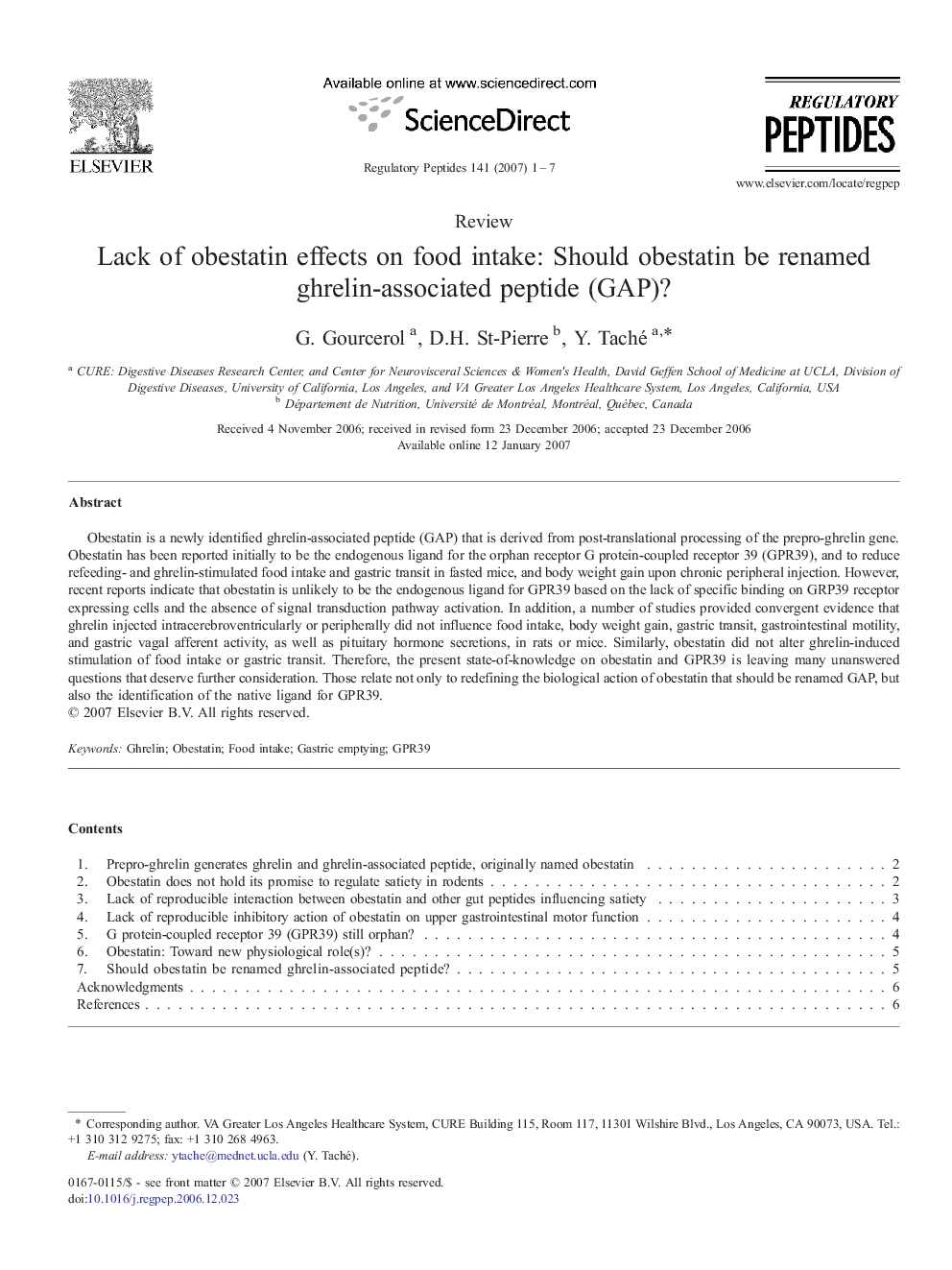| کد مقاله | کد نشریه | سال انتشار | مقاله انگلیسی | نسخه تمام متن |
|---|---|---|---|---|
| 2023287 | 1542444 | 2007 | 7 صفحه PDF | دانلود رایگان |

Obestatin is a newly identified ghrelin-associated peptide (GAP) that is derived from post-translational processing of the prepro-ghrelin gene. Obestatin has been reported initially to be the endogenous ligand for the orphan receptor G protein-coupled receptor 39 (GPR39), and to reduce refeeding- and ghrelin-stimulated food intake and gastric transit in fasted mice, and body weight gain upon chronic peripheral injection. However, recent reports indicate that obestatin is unlikely to be the endogenous ligand for GPR39 based on the lack of specific binding on GRP39 receptor expressing cells and the absence of signal transduction pathway activation. In addition, a number of studies provided convergent evidence that ghrelin injected intracerebroventricularly or peripherally did not influence food intake, body weight gain, gastric transit, gastrointestinal motility, and gastric vagal afferent activity, as well as pituitary hormone secretions, in rats or mice. Similarly, obestatin did not alter ghrelin-induced stimulation of food intake or gastric transit. Therefore, the present state-of-knowledge on obestatin and GPR39 is leaving many unanswered questions that deserve further consideration. Those relate not only to redefining the biological action of obestatin that should be renamed GAP, but also the identification of the native ligand for GPR39.
Journal: Regulatory Peptides - Volume 141, Issues 1–3, 7 June 2007, Pages 1–7